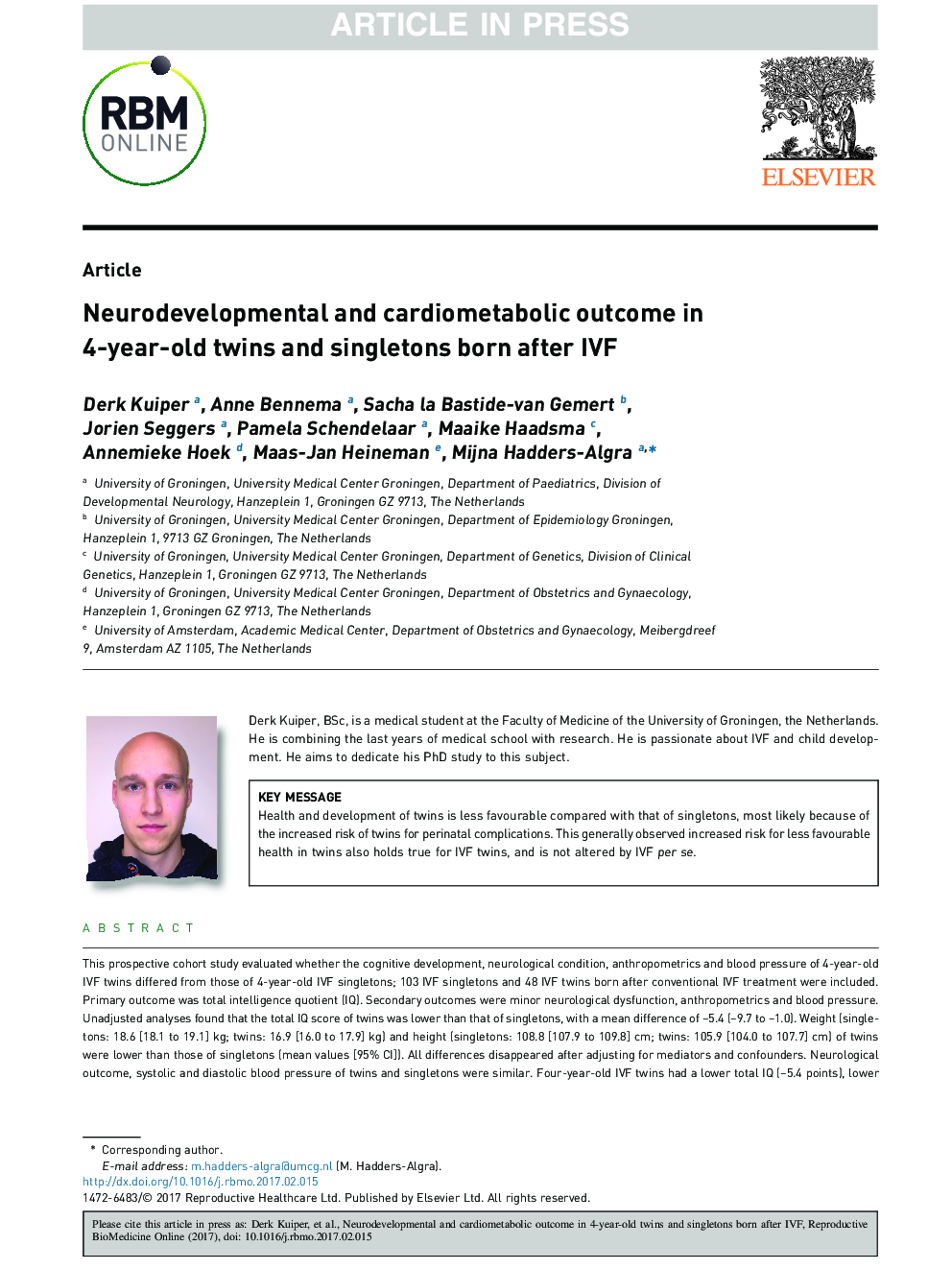| Article ID | Journal | Published Year | Pages | File Type |
|---|---|---|---|---|
| 5696774 | Reproductive BioMedicine Online | 2017 | 9 Pages |
Abstract
This prospective cohort study evaluated whether the cognitive development, neurological condition, anthropometrics and blood pressure of 4-year-old IVF twins differed from those of 4-year-old IVF singletons; 103 IVF singletons and 48 IVF twins born after conventional IVF treatment were included. Primary outcome was total intelligence quotient (IQ). Secondary outcomes were minor neurological dysfunction, anthropometrics and blood pressure. Unadjusted analyses found that the total IQ score of twins was lower than that of singletons, with a mean difference of â5.4 (-9.7 to â1.0). Weight (singletons: 18.6 [18.1 to 19.1] kg; twins: 16.9 [16.0 to 17.9] kg) and height (singletons: 108.8 [107.9 to 109.8] cm; twins: 105.9 [104.0 to 107.7] cm) of twins were lower than those of singletons (mean values [95% CI]). All differences disappeared after adjusting for mediators and confounders. Neurological outcome, systolic and diastolic blood pressure of twins and singletons were similar. Four-year-old IVF twins had a lower total IQ (â5.4 points), lowerbodyweight (â1.7âkg) and were shorter (â2.9âcm) than 4-year-old IVF singletons. After adjustment, the adverse twin effect disappeared, implying that increased risk for impaired health and development in twins also holds true for IVF twins, and is not altered by IVF.
Related Topics
Health Sciences
Medicine and Dentistry
Obstetrics, Gynecology and Women's Health
Authors
Derk Kuiper, Anne Bennema, Sacha la Bastide-van Gemert, Jorien Seggers, Pamela Schendelaar, Maaike Haadsma, Annemieke Hoek, Maas-Jan Heineman, Mijna Hadders-Algra,
